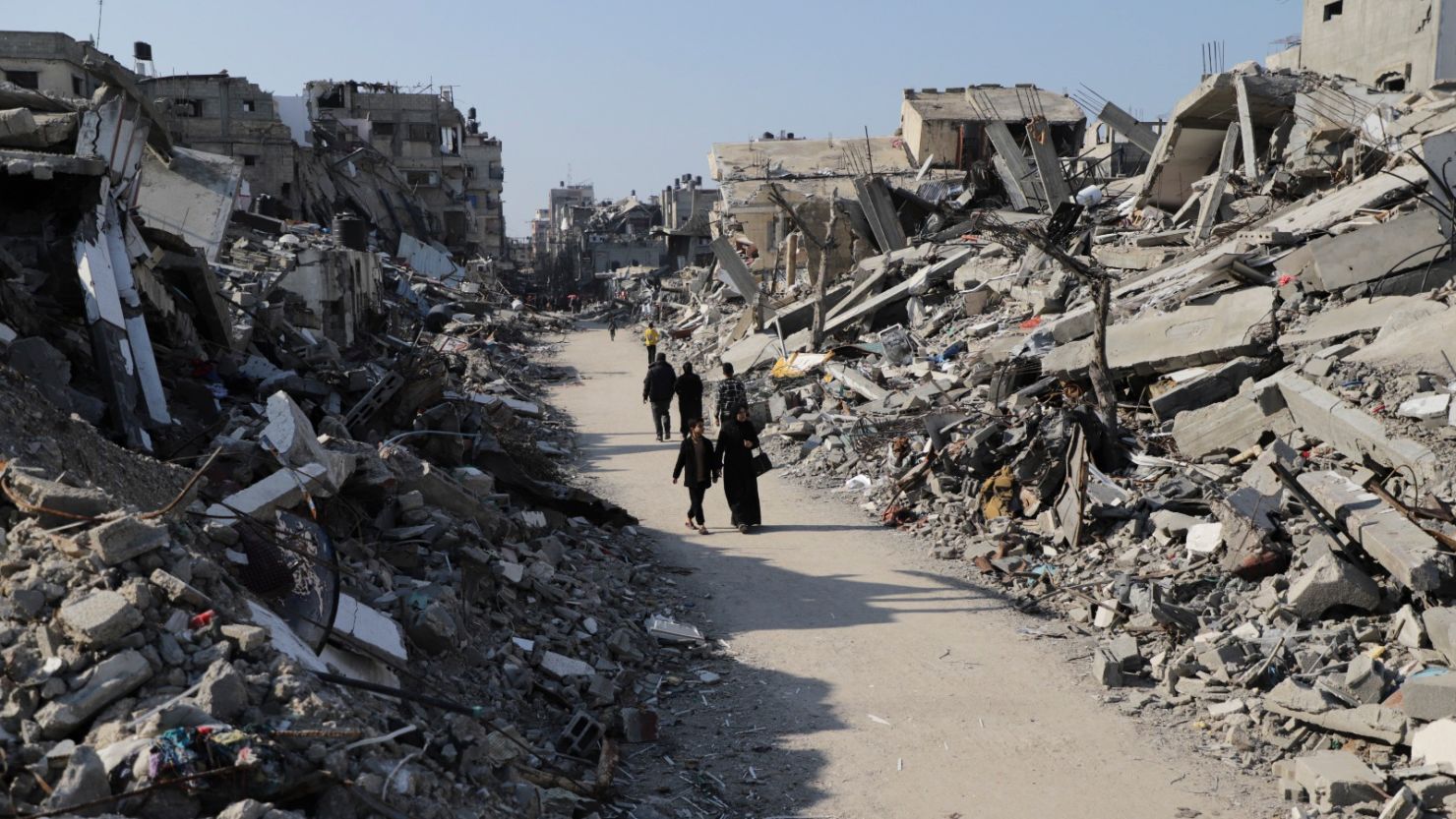The Israelis have “basically accepted” a six-week ceasefire proposal in Gaza, a senior Biden administration official told reporters Saturday. A second phase would be worked out over those six weeks “to build something more enduring.”
The six-week ceasefire would allow for the release of hostages in Gaza deemed the most vulnerable, including women, the elderly and the wounded, and the flow of aid into the beleaguered coastal enclave.
That official said there is a “framework deal” that Israel has “more or less accepted.” The sticking point, the official said, is that Hamas has not yet agreed to a “defined category of vulnerable hostages.”
US officials said Friday that talks to reach a ceasefire agreement to halt the fighting between Hamas and Israel in Gaza by Ramadan – now just about a week away –appeared to be on track, even after more than 100 Palestinians were killed Thursday as they tried to access food in Gaza City.
And on Friday afternoon, President Joe Biden called for an “immediate ceasefire.”
“We’re trying to work out a deal between Israel and Hamas on the hostages being returned and an immediate ceasefire in Gaza for at least the next six weeks and to allow the surge of aid to the Gaza Strip,” Biden said at the White House during a meeting with Italian Prime Minister Giorgia Meloni.
US officials said Friday there were no indications that the discussions had been significantly derailed because of the aid site deaths but that much hinges on an expected Hamas response to what has been discussed in Paris and Doha, Qatar, in the past week. Qatar, Egypt, Israel and the US have been involved in those talks. On Thursday, a Hamas official warned, however, that the negotiations could be affected.
As international efforts to broker a ceasefire continue, more talks are planned in Cairo, two sources familiar with the matter said Saturday. Negotiators from the US, Israel, Egypt and Hamas are expected to attend, a diplomatic source familiar with the discussions said. It’s not clear whether Qatar will attend.
Discussions between Israel and Hamas would be indirect, in separate rooms. Israel has asked Hamas for a list of the hostages, including who is living and who is dead. Hamas has still not responded to last week’s Paris meeting, which was followed this week by technical meetings in the Qatari capital of Doha with teams from US, Egypt, Qatar and Israel.
Also on Saturday, a White House official said Vice President Kamala Harris would meet Monday with Israeli war cabinet member Benny Gantz amid the US push for a temporary ceasefire.
“The vice president will discuss the urgency of securing a hostage deal, which would allow for a temporary ceasefire, and the need to significantly expand and sustain aid flows into Gaza, given the dire humanitarian situation,” the official said, adding that Harris would reiterate that the US is prepared to increase aid through airdrops and a maritime corridor.
Harris has been involved in the “day-after” planning for Gaza — and those discussions will continue Monday with Gantz, who is also expected to meet with national security adviser Jake Sullivan.
Biden had said earlier in the week that he hoped there’d be a ceasefire in Gaza by Monday, but he offered a mixed assessment of that possibility Friday, saying: “I think we’ll get there, but it’s not there yet. And it may not get there now.”
The US, meanwhile, is working with partners to scale up aid to Gaza. On Saturday, the US and Jordan air-dropped humanitarian aid into the besieged enclave, “part of a sustained effort to get more aid into Gaza, including by expanding the flow of aid through land corridors and routes,” US Central Command said.
There were 66 bundles dropped, a US official said. There was no water or medical supplies in the bundles, which were dropped in a location that the US assessed people in need were sheltering.
Following the airdrops, Biden said on social media the amount of aid flowing into Gaza was “not nearly enough,” adding that the US “will continue to pull out every stop we can to get more aid in.”
This story has been updated with additional information.
CNN’s MJ Lee and Oren Liebermann contributed to this report.








